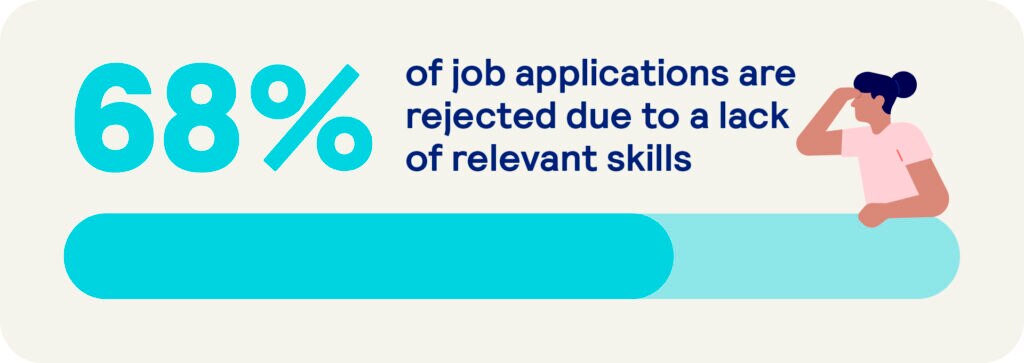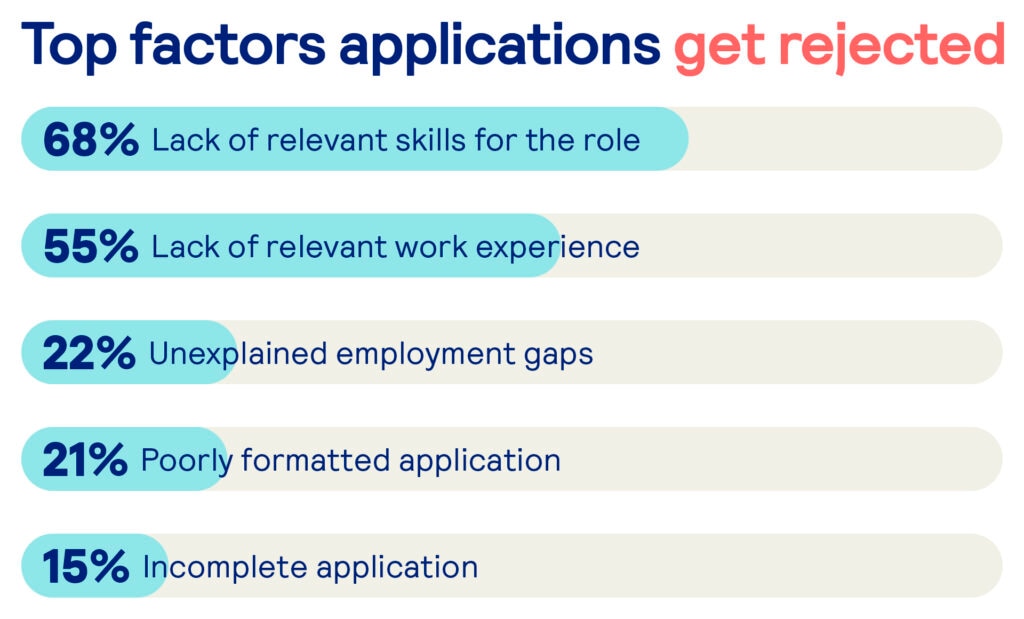IrishJobs has published new data, revealing that 2 in 3 job applications are rejected due to a lack of relevant skills, which leading to slower and more resource-intensive hiring for employers.
The IrishJobs Recruiter & Jobseeker survey gathered insights from 553 recruiters and 738 jobseekers in Ireland to identify changing attitudes and actions on hiring process in a fast-evolving labour market.
Findings from the survey show that 68% of job applications are rejected due to a lack of relevant skills which is impacting the speed and quality of recruitment. As a result, 78% of employers are not satisfied with the quality of job applications received for open positions, indicating a growing disconnect between what employers are looking for and where job candidates can deliver.

This dissatisfaction results in just 35% of candidates progressing to the interview stage, with manual screening slowing decisions and making it easier to miss strong candidates. This finding is a sign of the growing gap between the talent needs of employers and the relevant capabilities provided by candidates. A lack relevant skills is the main reason applications are rejected. This is followed by a lack of relevant experience and unexplained employment gaps.
Beyond skills and experience – presentation also plays a role in whether candidates make it through the recruitment process. More than 1 in 4 (21%) of job candidates are rejected due to poorly formatted applications. In response, a growing number of jobseekers are turning to AI to improve their applications. Findings from the research show that 35% of candidates are now using AI to optimise the formatting and language quality of their documents. With AI tools being used by more job candidates to generate content including CVs and cover letters, employers should consider evolving their hiring processes to ensure more holistic candidate evaluation.

Job advert disconnect: candidates seek greater clarity
77% of jobseekers believe the expectations and responsibilities of open roles were not clearly outlined in adverts during their last job search, according to the survey findings. This uncertainty can have a significant impact on the success of recruitment. 1 in 5 (20%) jobseekers will decline a job offer after an interview if expectations differ significantly from those originally advertised.

Candidates are also deterred by missing information. Half of candidates (50%) say the absence of a salary range makes them less likely to apply. Nearly as many (44%) are put off by unclear job titles, while a third (33%) report that vague descriptions of job benefits also impacts their decision.
Developing clearer and more detailed job ads is one of the steps employers can take to address these challenges and enhance the quality of applications. With 74% of recruiters saying that improved job descriptions lead to better applications, it’s clear that greater clarity (on everything from salary and benefits to responsibilities and expectations) can help bridge the gap between candidates and employers and streamline the recruitment process.
Commenting on the findings, Sam Dooley, Country Director of The Stepstone Group Ireland with responsibility for IrishJobs, said:
“Against a backdrop of global uncertainty, we can expect a slower pace of employment growth in Ireland over the coming months. Despite this evolving environment, the rate of unemployment in Ireland remains close to historic lows, with many employers still struggling to navigate a highly competitive market for talent and attract the high calibre talent needed to unlock future growth.
It’s clear from the findings of the IrishJobs Recruiter & Jobseeker survey that the quality of job applications received by employers in Ireland is having a direct impact on recruitment. A high volume of applications from candidates without the relevant skills for roles is creating challenges for many employers, resulting in a slower pace of hiring and the need for additional resources to manage the hiring process.
Developing clearer and more detailed job advertisements is one of the steps employers should consider in addressing these challenges and enhancing the quality of job applications. From salary and benefits to flexible working arrangements, jobseeker expectations are evolving at pace and leading to a growing disconnect between employers and candidates. Addressing these shifting preferences and providing a clear breakdown around the requirements and responsibilities of open roles can help to enhance the efficiency of the recruitment process and support employers to better secure the high-calibre talent that meets their future needs.”
About the study
To understand what stands in the way of receiving better quality applications, we surveyed 553 recruiters and 738 jobseekers in Ireland between the 24th of March – 29th of April and 24th of March – 28th of April 2025, respectively.
